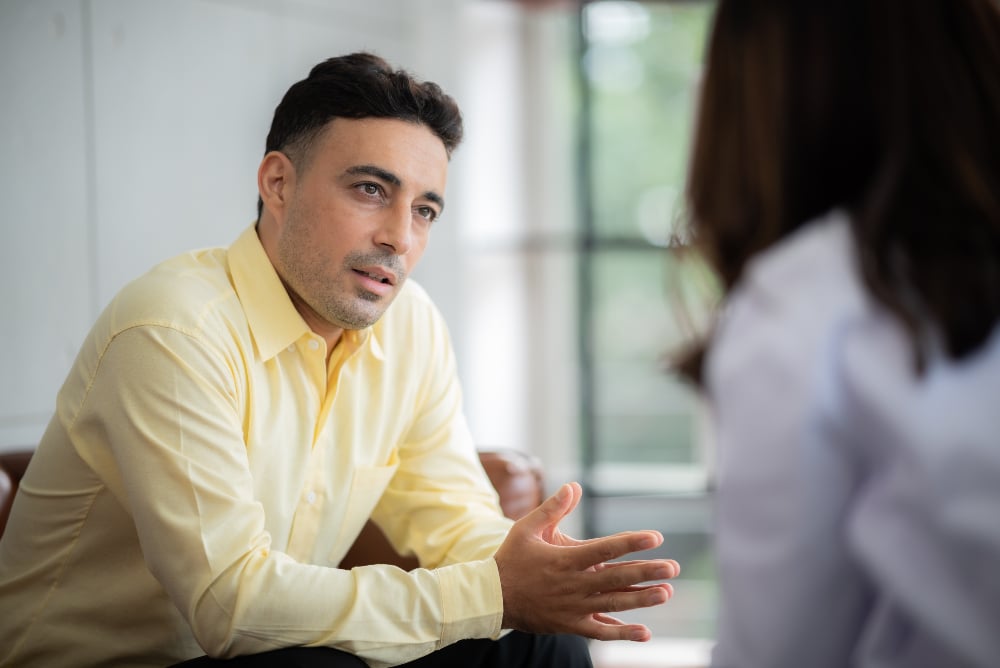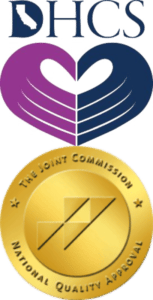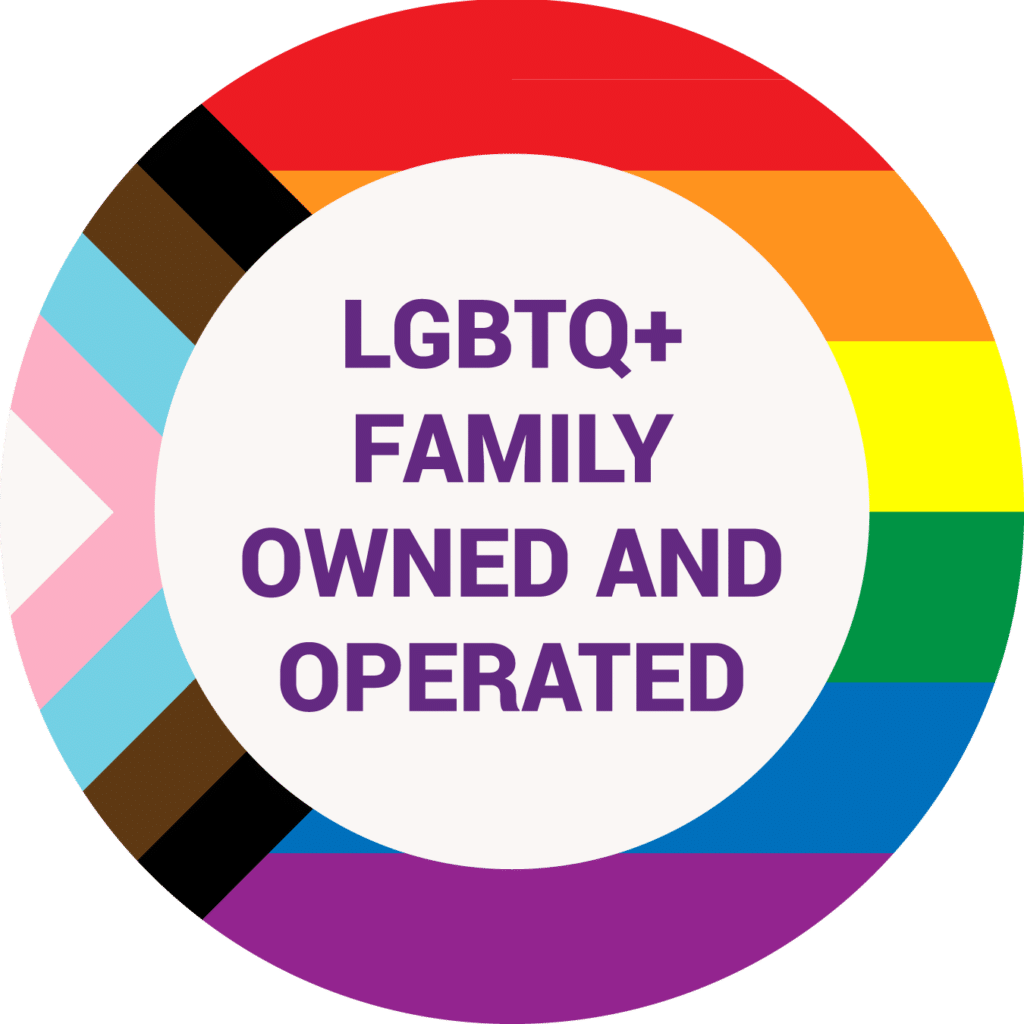Oftentimes people may be encouraging their loved one’s addiction without knowing it.
While the person who is addicted to drugs or alcohol struggles with their substance use, their loved ones have to wrestle with alternating feelings of love, pain, disappointment, and protectiveness.
Family and friends may cover up for their loved ones, give them money for drugs, or bail them out of jail – all in an effort to keep them away from danger. Unfortunately, these actions can do more harm than good by enabling the person who has the addiction.
Identifying the Signs: Are You Enabling a Loved One?
The American Psychological Association defines the word “enabler” as someone who aids in the maladaptive behavior (like substance abuse) of another person. Most enablers aren’t intentionally setting out to contribute to their loved one’s addiction. More often than not, enablers simply want to help their loved ones and keep them safe.
According to data from the Pew Research Center, about 46% of Americans have a close family member or friend with a drug addiction. Almost half of the population knows someone close to them with a substance abuse disorder, so chances are high that you or someone you know is an enabler.
1. You’re Giving Them Money, Even If It’s Not for Drugs or Alcohol
Most people will refrain from giving money for drugs or alcohol to their addicted loved one. They will, however, give them money for other items deemed as necessities, such as food, clothing, housing, or paying debts.
Although well-intentioned, giving money for any reason is harmful if you give it to someone addicted to drugs. To someone in the throes of an addiction, any source of money is a potential trade for drugs or alcohol.
Understandably, this behavior is challenging for sober loved ones to understand or accept. But individuals craving drugs will manipulate the people they love dearly to finance their addiction. They will take advantage of anything within reach to get drugs or alcohol, even if it means using money earmarked for meals or housing. Money given to someone with a substance-use disorder will likely be used to further their habits.
2. Prioritizing Their Needs Before the Needs of Others (or Your Own)
Enablers are willing to forgo the needs of others or themselves to meet the needs of the addicted person. They lose sight of their responsibilities and place the bulk, if not all, of their attention towards the individual with the addiction. When this occurs, loved ones risk alienating the other important people around them and endangering everyone’s well-being.
Although it’s only natural to want to help a loved one, it’s not beneficial to sacrifice the well-being of others to do so. The attention from the person enabling them only fuels the addicted individual and propels them further into their substance use.
3. Lying to Others to Protect the Addicted Individual
Individuals with a substance abuse or alcohol abuse disorder will deceive and manipulate anyone to obtain drugs or alcohol. According to a report from the National Institutes of Health, addiction changes the brain and compromises the ability to make appropriate decisions. Therefore, an individual deceives because their addiction drives them to do so, not because they’re a “bad person.”
Enablers, on the other hand, may lie and pretend to protect their loved ones. Rather than allow natural consequences for their loved one’s actions to occur, enablers will lie and cover up for them.
4. Placing Blame Everywhere, Except Towards the Addicted Individual
It’s hard to blame a loved one for something that seems beyond their control, so enablers may blame everyone else instead. An enabler will blame family members, friends, or co-workers — everyone except the actual person with the addiction. For example, in an effort to protect their loved one from the stigma of addiction, enablers will accuse others of lying about their loved one’s behavior.
Instead of blame, friends and family members should seek accountability and responsibility — in themselves and the person with the addiction. Pointing fingers at everyone else keeps the person with the addiction free from consequences or responsibility for their behaviors.
How to Help Without Enabling
There’s a stigma attached to the word “enabler,” because people mistakenly assume an enabler is knowingly contributing to an individual’s drug or alcohol problem. In actuality, most enablers do so out of great love and affection for the addicted individual. They’re doing what they think is best.
Once a friend or family member realizes their behaviors are enabling their loved one, they can take the following steps to stop. When it comes to helping a loved one with an addiction, they can:
Learn About Addiction
Being able to understand what your loved one is going through can help them get the support they truly need. A person does not have to be an addict to join groups such as AI-anon or Narcotics Anonymous.
A professional interventionist can also help effectively communicate and bridge the gap between family and addict.
Participate in Family Therapy
Its no doubt that when one person in the family has a substance use disorder, the rest of the family also has to deal with the consequences. Family therapy programs can prove very beneficial as you learn ways to work together.
Set Boundaries and Learn How to Communicate
Boundaries are a way for you to express your love and disapproval of your addiction or current behavior. Your enabling and unhealthy behaviors affect your family members, and setting boundaries is one way to express your love for them.
Learning how to effectively communicate with your loved one can help in the early stages of recovery. If your way of communicating isn’t working it could be time to try something new.
Stay True to Your Word
As hard as it might be following through with consequences is important for addicts to learn from their mistakes. Without consequences, an addicted individual is less likely to seek sobriety. Allowing a loved one to experience accountability for their behavior, on the other hand, opens the door to positive change.
Recovering from Addiction
If you or someone you know has an addiction, No Matter What Recovery can help. We offer addiction treatment and aftercare for the mind, body, and soul in a positive and caring environment. Contact us now for an appointment and evaluation.









